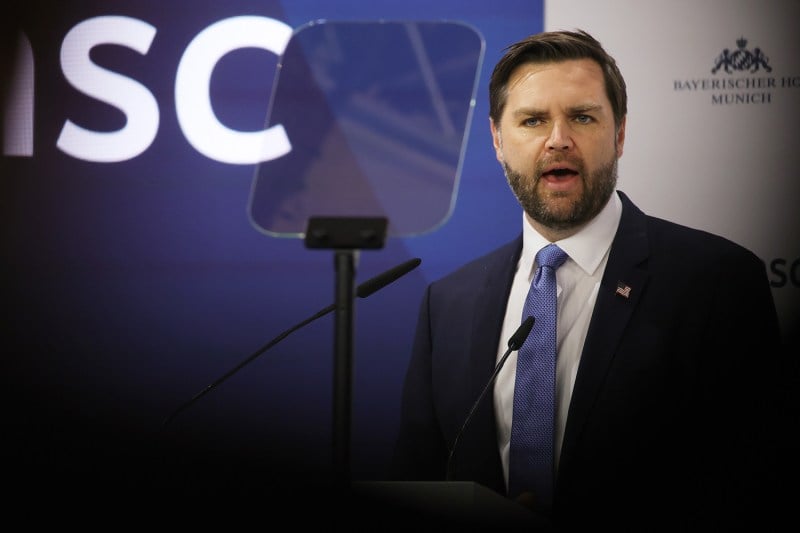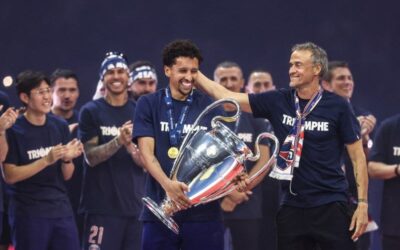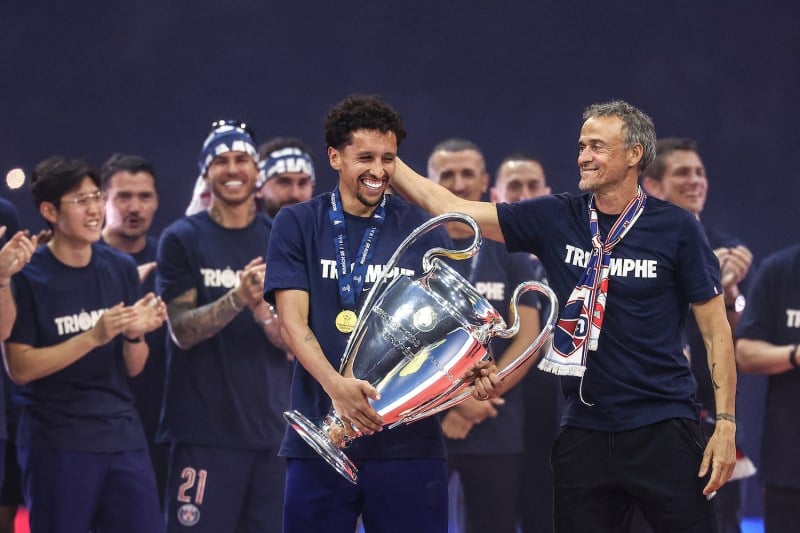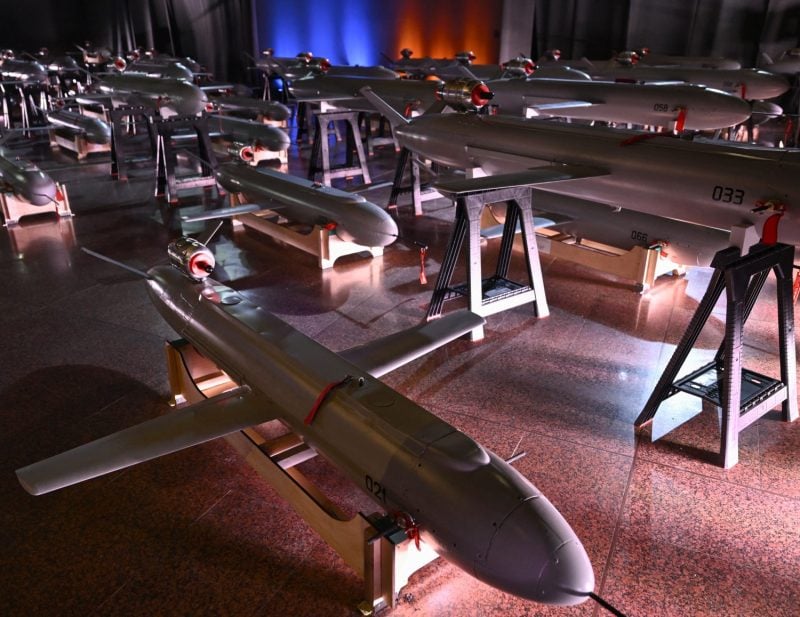Vance Leaves Europe Gobsmacked

Vance Leaves Europe Gobsmacked
U.S. Vice President J.D. Vance delivered a rebuke on immigration and alleged censorship to a shocked Munich Security Conference.
U.S. Vice President J.D. Vance delivers a speech during the Munich Security Conference on Feb. 14. Johannes Simon/Getty Images
Hello and happy Valentine’s Day from Munich, where SitRep spent the day at the Hotel Bayerischer Hof with hundreds of current and former world leaders, military officials, diplomats, and lawmakers during an action-packed first day of the Munich Security Conference.
Here’s what’s on tap for the day: U.S. Vice President J.D. Vance stuns the MSC, Europeans express consternation about being sidelined from Ukraine peace deal negotiations, and Chinese Foreign Minister Wang Yi delivers a thinly veiled criticism of the United States.
Hello and happy Valentine’s Day from Munich, where SitRep spent the day at the Hotel Bayerischer Hof with hundreds of current and former world leaders, military officials, diplomats, and lawmakers during an action-packed first day of the Munich Security Conference.
Here’s what’s on tap for the day: U.S. Vice President J.D. Vance stuns the MSC, Europeans express consternation about being sidelined from Ukraine peace deal negotiations, and Chinese Foreign Minister Wang Yi delivers a thinly veiled criticism of the United States.
“A New Sheriff in Town”
When Vance took the stage in Munich, most people were expecting him to hold forth on the topics that had animated the huddles and discussions around the venue leading up to his speech: European defense spending and the fate of Ukraine.
But those subjects only got a passing sentence each. Instead, Vance spent the bulk of his 20 minutes on stage criticizing what he characterized as a European retreat from the West’s “shared democratic values” driven by excessive censorship of free speech.
“The Cold War positioned defenders of democracy against much more tyrannical forces on this continent. Consider the side in that fight that censored dissidents, that closed churches, that canceled elections—were they the good guys? Certainly not, and thank God they lost,” Vance said.
“Unfortunately, when I look at Europe today, it’s sometimes not so clear what happened to some of the Cold War’s winners,” he added, before rattling off a list of examples aimed at illustrating his point: European Union officials’ threats to shut down social media “the moment they spot what they’ve judged to be ‘hateful’ content,” Germany’s raids on people posting misogynistic speech online, Sweden’s jailing of an activist who burned the Quran in public, and “safe access zones” around abortion clinics established in the United Kingdom.
For Europeans and others watching, Vance had a MAGA message: “In Washington, there is a new sheriff in town, and under [U.S. President] Donald Trump’s leadership, we may disagree with your views, but we will fight to defend your right to offer it in the public square,” he said, to scattered and hesitant applause—one of the few times he got any.
“Utterly, utterly frightening.” Several times in his speech, Vance singled out Romania, which late last year annulled its elections due to alleged Russian interference uncovered by Romania’s security services and is scheduled to hold them again. “You can believe it’s wrong for Russia to buy social media advertisements to influence your elections—we certainly do—you can condemn it on the world stage, even. But if your democracy can be destroyed with a few hundred thousand dollars of digital advertising from a foreign country, then it wasn’t very strong to begin with,” he said.
The U.S. vice president also spoke at length about the alleged threat posed by immigration, a major right-wing talking point on both sides of the Atlantic that he described as the most “urgent” challenge the nations represented in Munich face. “In England, they voted for Brexit—agree or disagree, they voted for it,” he said. “And more and more all over Europe, they’re voting for political leaders who promise to put an end to out-of-control migration.”
Most of the speech was met with stunned silence. “Gobsmacked” was a word used repeatedly in the aftermath, and SitRep overheard one attendee walking out of the Bayerischer Hof describe the speech as “utterly, utterly frightening.”
One senior European official, who spoke to SitRep on the condition of anonymity, said Vance “did something whilst being in Germany that Germans are pretty good at: Teaching lessons to others.”
Another official had far stronger words. “It was total bullshit. We don’t know what planet he is on,” the official said. “At least when we met Keith Kellogg, we could talk geopolitics,” they added, referring to Trump’s special envoy for Russia and Ukraine. “With Vance, we can’t even agree what a democracy is.”
Whither Europe? While Vance told Europe early on in his speech that “we are on the same team,” the more lasting impression appears to have been left by his final words: “Good luck to all of you, God bless you.”
Conversations we’ve been having with European officials in Munich over the last two days have betrayed deep concerns about the United States’ status as a reliable partner, even amid a recognition that Europe must do more for its own defense. “A stronger Europe works with the United States to deter the threats we have in common as partners, and this is why we believe that trade wars and punitive tariffs make no sense,” European Commission President Ursula von der Leyen said onstage to loud applause earlier in the day, a veiled swipe at Trump’s Thursday move to slap reciprocal tariffs on all U.S. trading partners.
Vance, who took the stage right after her, didn’t mention trade at all. But his speech drove home a key message for former Lithuanian Foreign Minister Gabrielius Landsbergis. “If that wasn’t a wake-up call for Europe, I don’t know what is,” Landsbergis told Foreign Policy. “We have to get our act together and figure out how to manage our problems on our own.”
On the Button
What should be high on your radar, if it isn’t already.
Defense spending. One thing that European officials seem to uniformly agree with Trump on is the need for them to spend more on defense. Von der Leyen said that “Europe must bring more to the table,” a sentiment echoed by NATO Secretary-General Mark Rutte, who told reporters in Munich that the number needs to be “north of 3 percent” of GDP for each of the alliance’s 30 European countries.
Asked by SitRep whether he’d care to put a timeline on that target, Rutte said he was hoping the details would be ironed out by the NATO summit at The Hague this June. “When you commit to a new number, you have to have a new timeline,” he said. “We cannot have a repeat of 2014 [the last time NATO set a spending target], where we set 2 percent and then nothing happened till Trump became president and then all of a sudden we saw Europeans and Canadians spending more.”
Call me, maybe. European officials are still reeling from Trump’s impromptu call with Russian President Vladimir Putin to start negotiations to end the war in Ukraine, with or without Kyiv’s involvement or theirs. “All options must be on the table,” said Lithuanian Minister of Foreign Affairs Kestutis Budrys, when talking about the sudden eruption of peace talks between Trump and Putin. “But not appeasement.”
Like most of his counterparts in Europe, Budrys is still trying to figure out what, if anything, U.S. policy toward Ukraine, Russia, and Europe might actually be, and who, if anybody, is actually speaking for the Trump administration: Is it the get-tough-on-Putin-to-force-him-to-the-table policy that Trump and his Ukraine envoy, Kellogg, have flagged publicly, or the roll-over-and-hand-over-Ukraine-to-Russia policy that many privately fear?
We’ll leave the light on. Ukraine’s energy system is struggling to survive the war’s third year as Russia keeps blowing up power plants and substations and trying to make sure Ukrainians live in the cold and dark. (Russia attacked a rather well-known nuclear power plant on Friday, for instance.)
“We urge our European and American partners to provide assistance,” said Maxim Timchenko, the head of DTEK, Ukraine’s largest private energy company. “This winter was not the disaster we feared, but the damage they have done is so bad, we can’t contemplate next year.” DTEK and other power companies in Ukraine were receiving financial support for the power grid’s reconstruction through the U.S. Agency for International Development, but the Trump administration suddenly cut that off with its aid freeze.
As FP’s Christina Lu reported, the Trump administration appears close to making a deal with Kyiv that would see Ukraine hand over rights to its critical minerals in exchange for continued U.S. aid. But Timchenko warned that Ukraine’s nominal riches won’t even be a chip to bargain with if it can’t keep the lights on, no matter what Trump’s exact designs. “All the minerals and rare earths in the world will not exist if there is no energy system,” he said.
Wang Yi barbs U.S., flatters EU. Chinese Foreign Minister Wang Yi’s Munich speech served as both a thinly veiled criticism of the United States and an appeal to European partners. Picking up on the theme of this year’s Munich Security Report, multipolarization, Wang said a multipolar world is “becoming a reality.” He cast China as a responsible stakeholder working toward a more “equal and orderly” world and upholding multilateralism to solve global challenges, in contrast to some countries that take a “might makes right” approach.
Wang said China abides by the U.N. system, adding a zinger: “Without norms and standards, one might be at the table yesterday but end up on the menu tomorrow.” China, of course, has its own interpretation of international laws, including ignoring a U.N. court’s ruling on territorial claims in the South China Sea. In the case of Taiwan, Wang argued that “respect for all countries’ sovereignty and territorial integrity should mean support for China’s complete reunification.”
Wang also repeated China’s typical criticisms of the U.S. approach to superpower competition: “Protectionism offers no way out and arbitrary tariffs produce no winners. Decoupling deprives one of opportunities and a small yard with high fences only ends up restraining oneself,” he said, referring to U.S. restrictions on technology exports to China. China, on the other hand, has been an engine for global growth, he said—a statement that conflicts with a rising trend of countries imposing tariffs on Chinese goods.
Wang ended with an invitation to European counterparts: Beijing is willing to deepen communication and cooperation with the European Union, he said. That may be a welcome message to European nations facing new tariffs—and more to come—from Washington.—Lili Pike
Snapshot
U.S. Vice President J.D. Vance (right), U.S. Secretary of State Marco Rubio (second right), and Ukrainian President Volodymyr Zelensky (left) meet on the sidelines of the Munich Security Conference in Munich on Feb. 14.Tobias Schwarz/AFP via Getty Images
Overseen in Munich
Trumpworld—including both current and former officials—was well-represented at the Bayerischer Hof on Friday. Your SitRep hosts spotted Trump’s newly confirmed director of national intelligence, Tulsi Gabbard, as well as former counselor to the president, Kellyanne Conway.
Retired Gen. James Mattis, who served as secretary of defense during Trump’s first term, came over to the Bayerischer Hof’s Falk’s Bar to have an animated conversation with Rutte.
And speaking of Rutte and Falk’s Bar: SitRep has a bit of a history with senior officials sitting down at our tables at said bar, and this year is no exception. Today, Rishi looked up to see none other than the NATO secretary-general suddenly sitting across the table. However, Rutte discreetly got up and walked to the bar when Rishi introduced himself to his spokesperson—who subsequently declined an interview. (Rishi gave up the table so Rutte could sit down and eat his sandwich in peace and managed to get a couple of questions in at his press gaggle an hour later anyway.)
Put on Your Radar
Saturday’s MSC program, in Munich time (GMT+1):
9:30 a.m.: German Chancellor Olaf Scholz in conversation with Economist editor in chief Zanny Minton Beddoes
10:15 a.m.: Zelensky in conversation with CNN’s Christiane Amanpour
12:30 p.m.: Rutte speaks on a panel about the transatlantic relationship with U.S. Sens. Lindsey Graham and Jeanne Shaheen.
3:30 p.m.: A session on Afghanistan with Pakistan’s former foreign minister, Hina Rabbani Khar; Afghanistan’s first female deputy speaker of parliament, Fawzia Koofi; and U.S. Rep. Jason Crow of the House Armed Services Committee
Foreign Policy is also hosting the Emerging Threats Forum on the sidelines of the conference from 3:00 p.m. to 5:30 p.m.
Quote of the Day
“Geography matters.”
—Lídia Pereira, a member of the European Parliament from Portugal, speaking to SitRep about the importance of Europe being involved in any Ukraine peace deal negotiations.
Today’s Most Read
- DOGE Is Hacking America by Bruce Schneier and Davi Ottenheimer
- America Is Its Own Worst Enemy by Stephen M. Walt
- The Global South, Not Europe, Should Play Peacekeeper in Ukraine by Naman Karl-Thomas Habtom
Rishi Iyengar is a reporter at Foreign Policy. X: @Iyengarish
Keith Johnson is a reporter at Foreign Policy covering geoeconomics and energy. X: @KFJ_FP
More from Foreign Policy
-

Russian President Vladimir Putin looks on during a press conference after meeting with French President in Moscow, on February 7, 2022. The Domino Theory Is Coming for Putin
A series of setbacks for Russia is only gaining momentum.
-

The container ship Gunde Maersk sits docked at the Port of Oakland on June 24, 2024 in Oakland, California. How Denmark Can Hit Back Against Trump on Greenland
The White House is threatening a close ally with a trade war or worse—but Copenhagen has leverage that could inflict instant pain on the U.S. economy.
-

Donald Trump speaks during an event commemorating the 400th Anniversary of the First Representative Legislative Assembly in Jamestown, Virginia on July 30, 2019. This Could Be ‘Peak Trump’
His return to power has been impressive—but the hard work is about to begin.
-

US Secretary of State Marco Rubio greets employees at the State Department in Washington, DC, on January 21, 2025. The National Security Establishment Needs Working-Class Americans
President Trump has an opportunity to unleash underutilized talent in tackling dangers at home and abroad.








Join the Conversation
Commenting on this and other recent articles is just one benefit of a Foreign Policy subscription.
Already a subscriber?
.
Subscribe
Subscribe
View Comments
Join the Conversation
Join the conversation on this and other recent Foreign Policy articles when you subscribe now.
Subscribe
Subscribe
Not your account?
View Comments
Join the Conversation
Please follow our comment guidelines, stay on topic, and be civil, courteous, and respectful of others’ beliefs.
Change your username |
Log out
Change your username:
CANCEL
Confirm your username to get started.
The default username below has been generated using the first name and last initial on your FP subscriber account. Usernames may be updated at any time and must not contain inappropriate or offensive language.